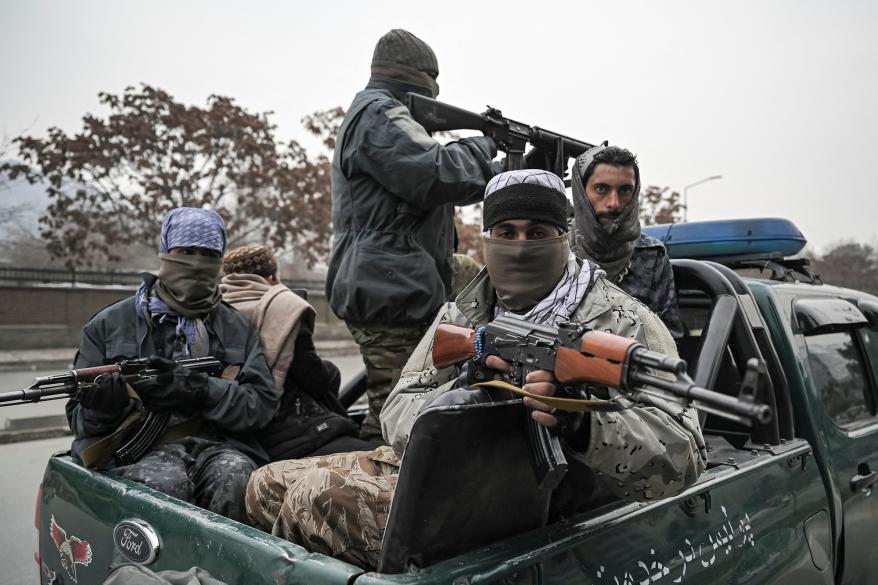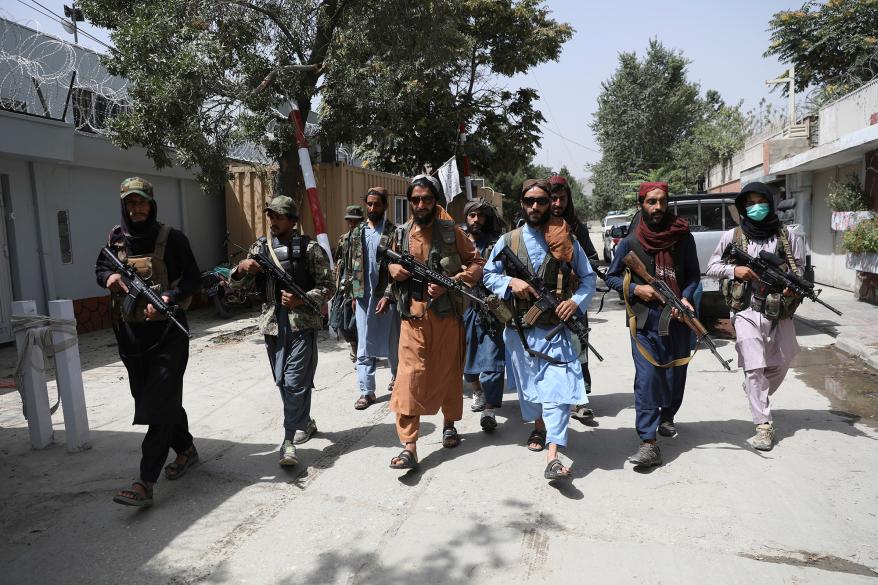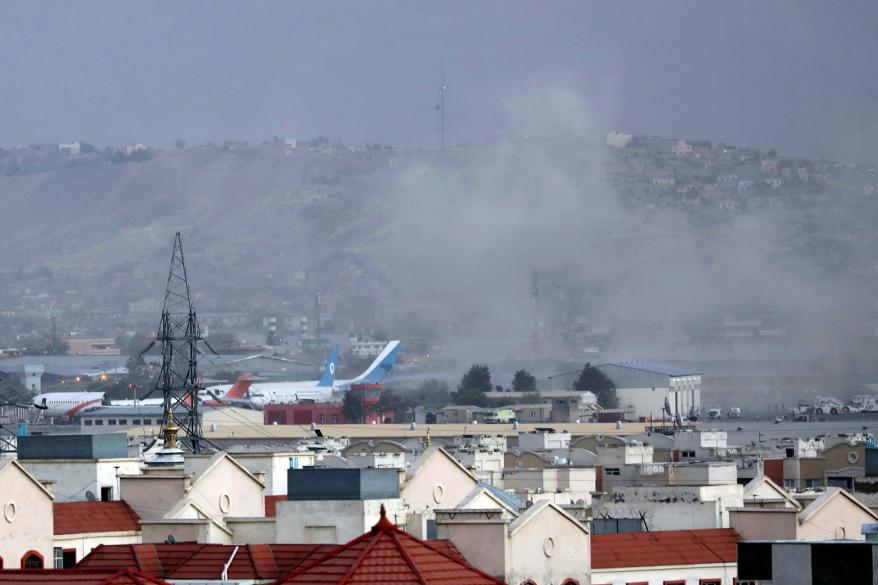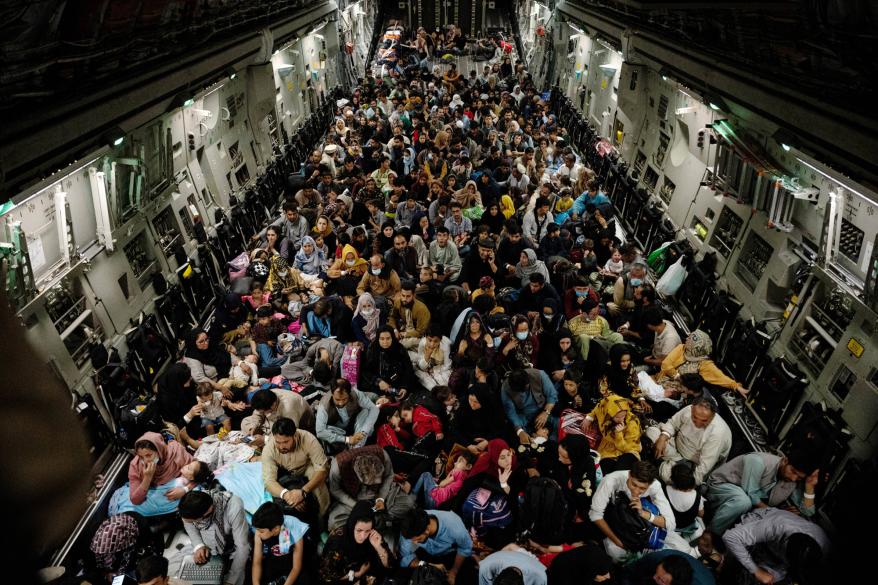‘Escape from Kabul’ director on Afghanistan under Taliban rule
Last winter, Taliban forces stormed a home in Kabul, Afghanistan, and discovered an ISIS terror cell with plans to bomb the city’s presidential palace occupied by Taliban militants.
“Often the Taliban would just start searching houses. So they’d smash into people’s houses, or they just go door by door,” filmmaker Jamie Roberts, who was living near the cell at the time, told The Post.
“I think what they were looking for was weapons or spies.”
Since the departure of American troops from Afghanistan in August 2021, chaos, fear and rampant violence has ruled the country, said Roberts, the director of “Escape From Kabul,” a new documentary chronicling the harrowing exodus premiering Wednesday on HBO Max.
Armed raids are only the beginning of everyday terrors under Taliban rule now faced by Afghanistan citizens — including American allies unable to flee.
“You’ll see it on the street, [the Taliban] have complete control and they’re hardliners. So people follow their rules and if they don’t, then you get beaten, or you get put in prison, or you don’t really know, because the rules aren’t really set yet … there were people getting shot at checkpoints,” he added.
“There were [constant] minor bombings happening … You just hear gunfire at night.”
Earlier this month, after the regime reportedly closed down several sixth-grade-and-up schools for girls, the United Nations said that Taliban were committing “intimidation and harassment targeting its Afghan female staff.”
“It’s not a regular functioning country with a judiciary, police force, government and journalists to hold those to account. You’ve just got one single entity with no oversight,” Roberts said.
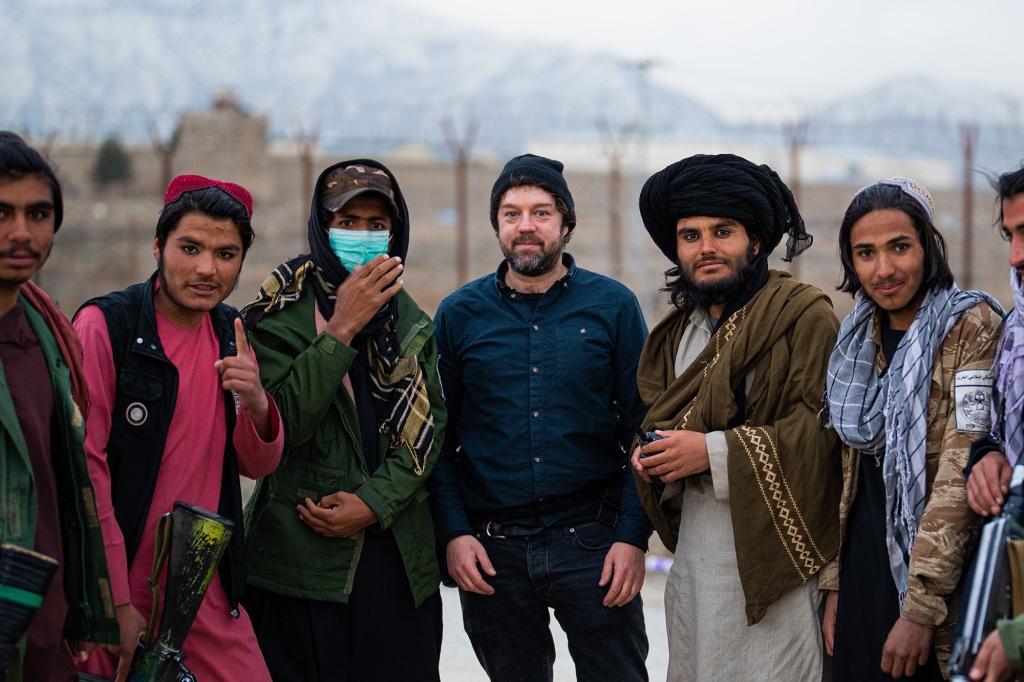
“The journalists are being arrested. Obviously, women are very fearful for what’s going to come to them … you have this fake news taken to another level, everything’s just on social media. So you’d hear a bomb go off, unless it’s really bad, you’ve got no idea what’s going on.”
It’s far too often that the victims of these bombings and acts of violence — whether by the Taliban, ISIS or criminals — are innocents, the filmmaker said, noting the carnage he witnessed.
“There’s children there with landmine [wounds] and their hands blown off, people with head-wound shots coming in [to hospitals],” he said.
The abhorrent lawlessness is exacerbated by “economic desperation,” Roberts said, noting how especially dangerous the area around Kabul’s airport became.
“People would call it the ‘Ali Baba’ area, because there were lots of kidnappings and lots of crime,” he said. “Child beggars everywhere [across Kabul] with almost Dickensian dirty faces, begging. Really small, you’re talking like 5, 6, 7, 8 years old, you’d see them out at night. The level of poverty is huge.”
After the Taliban took control of the presidential palace in Kabul on Aug. 15, 2021, they surrounded Kabul’s airport with 1,000 suicide bombers during the ensuing evacuation, claims Taliban commander Abdul Hadi Hamdan in the documentary.
Many perished waiting on dayslong lines to get into the airport while another group of people clung to the outside of an airborne C-17 and fatally plummeted to the ground. One night, ruthless Afghan special forces cleared massive crowds from the tarmac and people were being “executed” on site, Major Jordan Eddington of the United States Marine Corps says on-screen.
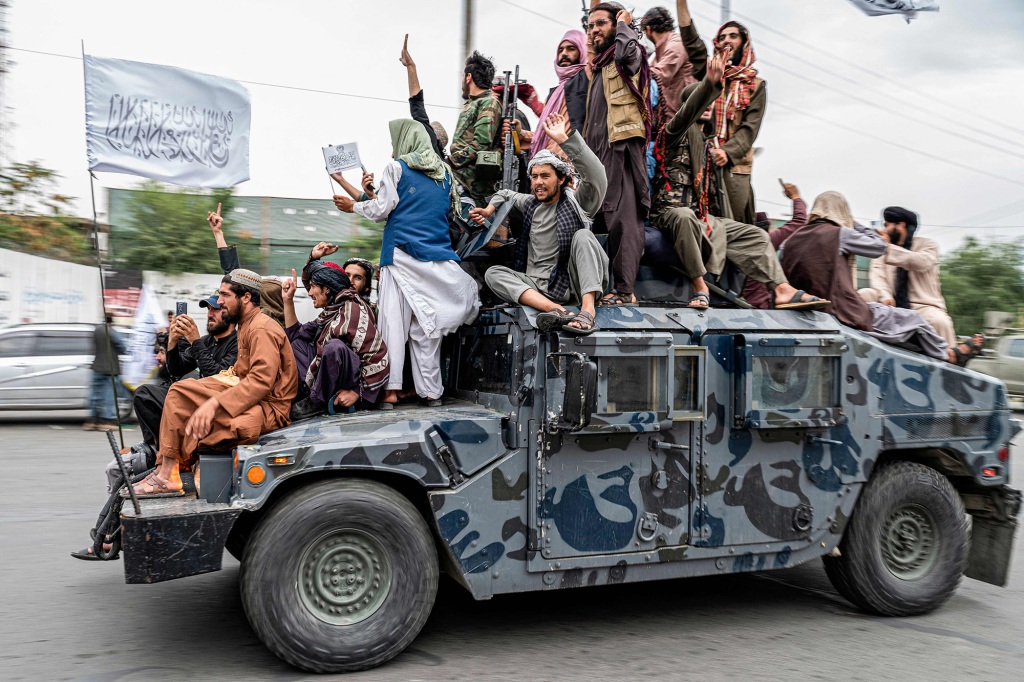
On Aug. 26, an ISIS suicide bomber took the lives of 13 US military personnel and 170 fleeing civilians.
Despite the catastrophic withdrawal, more than 124,000 citizens were airlifted to safety by the month’s end. The operation was the largest evacuation of non-combatants in American military history.
Now, as Afghanistan faces leadership under the Taliban once more — the group had been ousted by American troops in 2001 — many have expressed remorse over the American departure, Roberts said.
“All these people [Americans and allied military contractors] interacted and worked with Afghans and they provided a lot of work — also social interactions,” he said. “So I think that there was a huge feeling of sadness and loss that the West did leave.”
Read the full article Here


